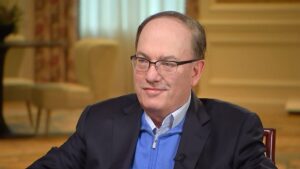Navigating Economic Uncertainty: Insights from Billionaire Investor Steve Cohen
At Extreme Investor Network, we believe that staying informed about the thoughts and predictions of prominent investors can significantly enhance your investment strategy. Recently, billionaire investor Steve Cohen, the chairman and CEO of hedge fund Point72, shared his perspectives on the current state of the U.S. economy during a CNBC interview at the FII Priority Summit in Miami Beach. His insights are particularly relevant given the rapidly evolving economic landscape.
A Bearish Outlook on the U.S. Economy
Cohen’s latest remarks reflect a significant shift in his economic outlook. For the first time in a while, he has adopted a bearish stance towards the U.S. economy, citing several critical factors.
-
Punitive Tariffs: Cohen has voiced strong opinions against the current trade policies, stating, “Tariffs cannot be positive, okay? I mean, it’s a tax.” Increased tariffs, designed to protect domestic industries, are effectively taxes on consumers and businesses alike, leading to inflationary pressures. This sentiment is echoed across various sectors, as manufacturers and retailers grapple with rising costs that inevitably trickle down to consumers.
-
Immigration Policy: The tightening of immigration policies has piqued Cohen’s concerns about labor supply. He highlighted that slowing immigration could hinder the growth of the labor force, potentially leading to worker shortages in various industries, further fueling wage inflation. The impact of such labor constraints is multifaceted, affecting everything from consumer spending to overall economic growth.
- Federal Spending Cuts: Cohen criticized initiatives aimed at reducing federal expenditures, particularly those championed by figures like Elon Musk. He expressed concern that the proposed $2 trillion cut could stifle economic activity. Money that previously flowed into the economy could see a significant downturn, adversely affecting businesses and consumers.
Slowing Economic Growth Predicted
In the face of these challenges, Cohen anticipates a deceleration in economic growth, predicting the U.S. economy will slow to 1.5% growth from the more robust 2.5% previously forecasted for the second half of the year. This decline could alter the investment landscape, signaling to investors that they might brace for a market correction.
“I think we’re seeing the regime shift a little bit,” Cohen remarked. While he believes this could be a temporary phase lasting about a year, he does not foresee a complete economic disaster. Instead, he suggests that this could be a period of recalibration, prompting investors to rethink strategies as market conditions evolve.
What This Means for Investors
Steve Cohen’s insights serve as a critical reminder for investors navigating today’s complex economic environment. Here are a few takeaways to consider:
-
Be Cautious with Growth Projections: With a potential growth slowdown on the horizon, reassessing growth projections for your investments is essential. Areas that thrived in a growth-heavy environment may require a reevaluation of their long-term viability.
-
Sectoral Opportunities: With increased tariffs and labor shortages, some sectors may outperform others. Consider industries that can weather these storms, such as technology and essentials, which often adapt better in uncertain economic climates.
- Stay Updated: The financial landscape is ever-changing, and insights from seasoned investors can provide a competitive edge. Regularly check back with us at Extreme Investor Network for the latest trends and expert opinions to bolster your investment strategy.
In summary, while Steve Cohen’s bearish outlook marks a turn in sentiment, intelligent investors can leverage this information to position themselves effectively for the changing tides. Let’s face the potential challenges together and find opportunities in uncertainty.
For the latest updates and expert financial insights, remain connected with the Extreme Investor Network as we continue to guide you through the complexities of investing in a dynamic market.

